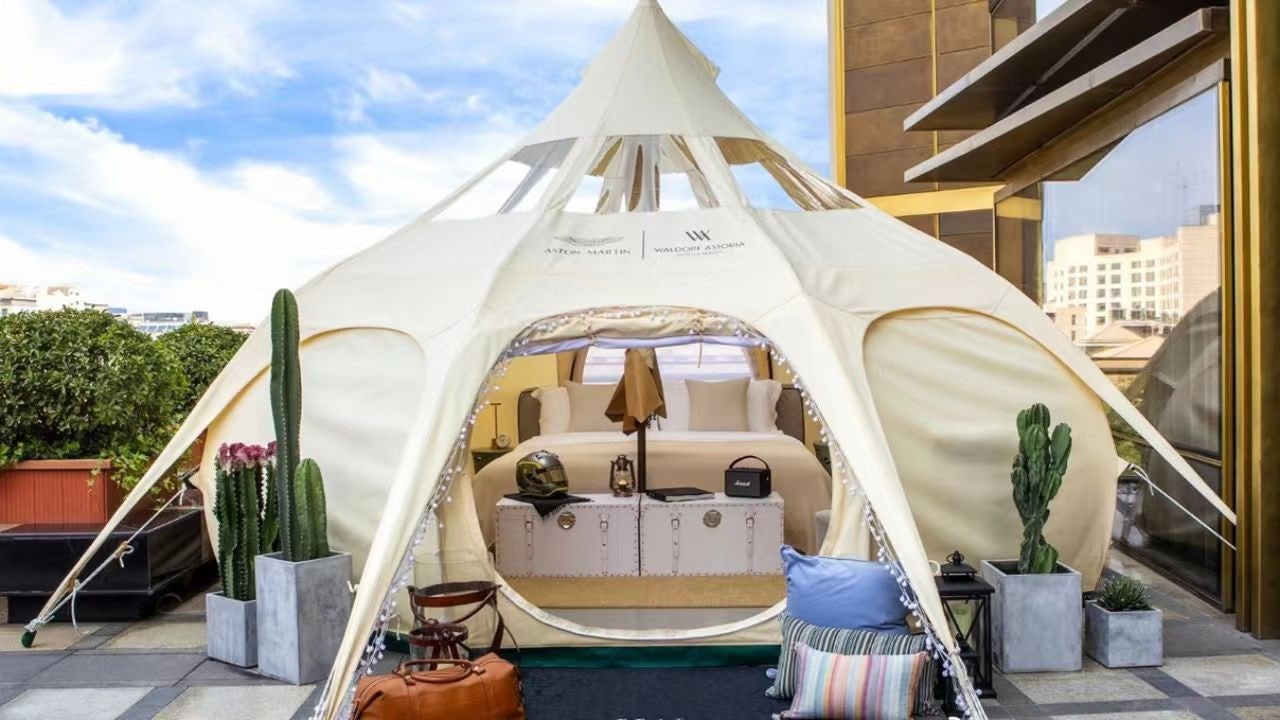Subscribe to our Jing Beauty newsletter to get the latest news on China's world of beauty and wellness.#
The impact of the pandemic created a new staycation trend in China, with many citizens preferring to stay in their home cities for vacations, or take short trips to surrounding areas. Hotel brands from the Bulgari to the Bellagio have capitalized on the trend.
“The pandemic caused consumers to experience an unprecedented sense of constraint, which changed their lifestyles. It prompted people to pay more attention to their health, relaxation, and experiencing life,” says Matthias Terrettaz, general manager of the Bulgari Hotel in Shanghai.
Who is embracing luxury staycations#
?
Demand for “staycations,” evidenced by hotel and entertainment activity bookings, has continued after the pandemic, according to a report jointly released by Ctrip and the World Travel and Tourism Council (WTTC) in 2023.
More and more consumers are integrating their vacations with business trips, and young consumers have pushed up the occupancy rates of city-themed hotels.
About one-third of Bulgari Hotel’s guests are 26 years old to 33 years old. Terrettaz says millennials and Gen Z consumers are more likely to go on staycations.
“They often seek experiences and adventures in their region. They pay more attention to creating a ritual and enjoying holidays,” says Terrettaz.

Another demographic engaging in this trend is old consumers.
“The silver economy is the one to pay attention to, as older consumers prioritize health and wellness,” says Kevin Qin, China general manager of Bellagio by MGM Shanghai. “Staycations are more common for short weekend vacations, while people tend to travel to other regions during longer holidays.”
Both these luxury five-star hotels cost above 500 (3,700 RMB) per night on average, and 90 percent of their guests are Chinese, mainly from first-tier cities. According to Bulgari Shanghai, the top five cities that local guests hail from are Zhejiang, Jiangsu, Shanghai, Guangdong, and Beijing.
Foreign travelers, accounting for 10 percent of guests, mostly visit China for business trips, such as CEOs from international companies and visiting luxury brand management teams.
Rich sensory experience#
When stepping into the Bulgari Hotel, guests receive a greeting card saying “Bulgari Hotel Shanghai, your home in Shanghai.” From complimentary perfume and bath salts to candles, a scarf and pajamas, the five-star hotel aims to create a cozy yet luxurious experience for guests.
Shanghai resident and Citibank consultant Katya Wang says she can easily spend a whole weekend at the hotel.
“Morning starts with a room service breakfast. Then, I’ll exercise at the gym and swimming pool before a La Mer facial spa appointment. After a relaxing 90-minute treatment, it is time to put some makeup on and head to the 47th floor for afternoon tea with a Pudong skyline view. Finally, after relaxing in the hotel room, I wrap up the night with a cocktail on the terrace bar,” she says.

Finn Partners’ 2023 report shows that more than 70 percent of surveyed Chinese travelers with an annual income of over 200,000 (1.4 million RMB) prefer slow-paced vacations rather than a rushed travel itinerary full of activities. Appreciation for art and culture among this young and affluent demographic is high.
“Bellagio presents a unique art journey. Staying at Bellagio is like staying in a charming art museum,” says Qin.
The art déco-style hotel displays over 1,000 works of art. Guests can scan an art work’s code on their mobile phones to explore more information.
The hotel’s unique location allows travelers to view Shanghai’s three landmark skyscrapers, the Garden Bridge, the Suzhou River, the Postal Museum, and the International Architectural Complex.
Maye Musk, the mother of Tesla and SpaceX founder Elon Musk, praised the hotel for having the best view of Shanghai.

Collaborations#
About 26 percent of Gen Z travelers choose a travel destination based on the hotel’s location and brand.
Collaborations are helping hotels raise their brand awareness, and some hotels are using tie-ups with luxury households to consolidate their high-end image. Travelers also wish to stay in community-focused hotels that exude a relaxed and friendly atmosphere, where they can make new friends.
For instance, Bellagio Shanghai this year collaborated with high-end motorbike maker Indian Motorcycle and partnered with Lancôme to offer guests an exclusive spa treatment. Meanwhile, its sister hotel — MGM Shanghai — opened this year on Shanghai’s West Bund. It partnered with Chinese artist Ni Zhiqi to decorate a room for the hotel, which will be permanently available for booking for hotel guests.

“Staycation culture has once again focused the hotel’s attention on the locals who visit the hotel. The hotel needs to provide authentic, high-touch service to create rich sensory experiences and unforgettable memories, which creates deeper emotional connections with consumers,” says Terrettaz.


